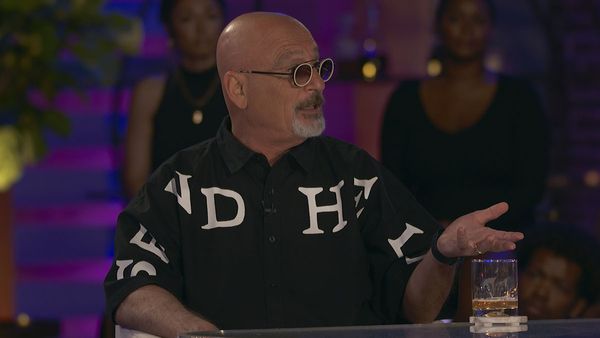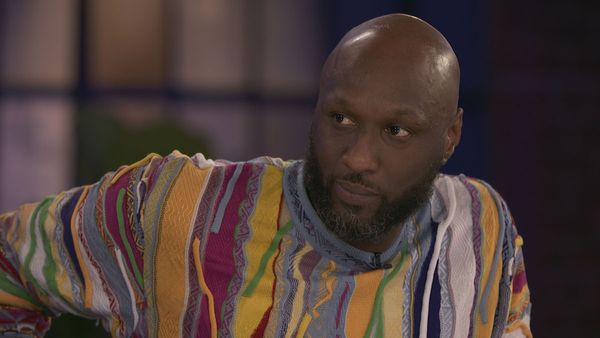
Not taking Nick Cannon seriously is an involuntary reflex for some of us. We have our reasons. Maybe it's because he’s a professional talent competition emcee, hosting shows like “America’s Got Talent” and “The Masked Singer” – a job that requires charisma but not necessarily intellectual agility or depth.
He’s also fathered 12 children with six different women over the last 15 years, ensuring regular tabloid exposure and mentions in stand-up routines. And the host and creator of MTV’s “Wild ‘N Out” has said his share of, um, wild things over the years.
One almost cost him that show in 2020, when he made antisemitic remarks on his podcast “Cannon’s Class.” The series’ then-parent company ViacomCBS temporarily severed ties with him in the direct wake of that incident, only to plug him back in once Cannon “did the work,” as they call it in self-help circles.
So you can’t blame people for looking at his new series “Counsel Culture” with all the side-eye in the known universe. Where to begin? There’s the title and motto Cannon repeats in each episode – that “it’s not about cancel culture, it’s about counsel culture.” This invokes a concept that Cannon has proven several times doesn’t really exist along with establishing the show’s connection to the medium’s fraught melding of psychotherapy and entertainment.
Cannon referenced supposed cultural cancellation during a 2020 Variety virtual roundtable with editor-at-large Kate Aurthur in response to the firing of “Vanderpump Rules” cast members Stassi Schroeder and Kristen Doute.
“I think we should shift the idea of cancel culture to counsel culture because we all have a past,” he said. “Clearly we’re living in a very systemic infrastructure where everyone's guilty . . . So in that, let's figure out how to fix that one individual at a time, and use these times when people may say something incorrectly or out of ignorance and educate.”
If only he hadn’t promoted an antisemitic trope accusing Jewish people of controlling centralized banking, among other statements, on an episode of his podcast “Cannon’s Class” that surfaced a month after saying that.
Once his TV studio overlords threatened to send Cannon down the road of unemployment, he negotiated a detour through what he refers to as a journey of atonement in an interview featured in a 2021 episode of ABC’s “Soul of a Nation.”
I realize how sardonic this reads about a man who, by all accounts, did much more than simply pay the standard forgiveness tax to a Jewish organization on top of issuing a perfunctory apology along with assurances about listening, meditation and other typical means of public mea culpa-ing to get it over with.
That comes with the territory of dealing with multihyphenates with a massive platform and the influence that comes with it Cannon has been a fixture among Millennials since his Nickelodeon debut on “All That” led to him fronting a self-titled spinoff, “The Nick Cannon Show.”
He’s also a hip-hop performer and movie actor. The remarks that got him in hot water threatened his ability to continue with his most lasting success, the MTV show he also created and produced that’s been on since 2005, save for a six-year hiatus between 2007 and 2013.
All of which is to say, he has a financial stake in representing himself as someone who made a huge mistake, held himself accountable and demonstrated growth. From what he’s said in the podcast that inspired his TV show, he tried to do that — at least on some fronts.
In a recent podcast conversation with inspirational speaker and life coach Iyanla Vanzant, who hosted “Iyanla: Fix My Life” from 2012 to 2021 on OWN, Cannon said he’s in counseling three or four times a week on top of managing his career — and somehow making time to keep up with his expansive family.
What he’s taken from that experience informs the tone and approach of his Amazon series, where a roundtable of “counsel men” delves into conversations ranging from discussions about anxiety, depression, body image, modern dating and (of course!) fatherhood.
Joining Cannon’s regular presence is Dr. Ish Major – who is a board-certified psychiatrist on top of being a TV personality, which is more than Dr. Phil McGraw can claim – and bestselling author and psychotherapist and bestselling author Dr. Mike Dow.

He’s also joined stars whose struggles were also chronicled in tabloid pages, including former NBA star Lamar Odom and Ray J (both of whom also happen to be Kardashian-adjacent) and other TV personalities in the advice-dispensing business.
The show is billed as a safe space to explore issues of men’s vulnerability, although many of the audience members happen to be young, attractive women. That also makes it an extension of Cannon’s mindscape, including his moments of self-examination and his frailties.
That’s not necessarily to its detriment. Since “Counsel Culture” devotes itself to showing its creator’s serious side, he doesn’t shy away from taking its medicine in front of the cameras.
Cannon’s son Zen died from brain cancer at 5 months old in 2021, one of the inspirations for his “Understanding Grief” episode. But when he quietly begins to cry while the panel discusses loss, you can tell it’s unplanned. Not many celebrities grieve openly unless the space is orchestrated for it, even on shows like this.
And the producers could have kept his expression out of the final cut, allowing the host to regain his composure. Instead, a fellow panelist calls attention to his tears and invites Cannon to share what he’s going through. He does, until he says, “I’m not going to sit here and cry my eyes out.”
“But if you did,” Major tells him, “it would be OK.”
When considering its place in the larger TV therapy landscape, “Counsel Culture” leaves me conflicted. Cannon has that baggage we’ve mentioned and others he hasn’t had to answer for, like his characterization of Planned Parenthood’s mission as “population control” and “modern-day eugenics” on a 2016 broadcast of "The Breakfast Club" radio series.
His newest series is grounded in the notion that people can change, which he considers solemnly.
Even so, in May, a podcast episode of “Counsel Culture” featured a conversation with Dr. Umar Johnson, a pan-Africanist who is against interracial marriage and homosexuality, sharing his views on polygamy.
For many viewers, watching shows centered on mental health is, in its way, their version of therapy. And some mental health professionals featured on such series operate with care, considering that knowledge. But it’s always a slippery proposition to make entertainers like Cannon the face of growth and psychological wellness.
The examples provided by Dr. Drew Pinsky and McGraw let us know how perilous it can be to mix psychological wellness and celebrity culture. The legacy of the syndicated “Dr. Phil” is one of cheapening the process for shock value.
When he ended his show last year after 21 seasons it still averaged around 2 million viewers per episode. Along the way he also collected a trail of lawsuits, a publicized beef with Britney Spears’ family, and a flirtation with COVID denial, to name a few reasons to be glad he’s disappeared from major broadcast platforms.
(But not entirely; this week he announced an interview with Donald Trump on a nascent Internet streaming service, preaching, among other nonsense, the necessity to forgive the convicted fraudster who has promised to use his office to take vengeance on his enemies if he’s re-elected president.)
Cannon wisely doesn’t position himself as an expert, although he’s said that he’s pursuing his master’s degree in psychology. Instead, he acts as a facilitator, leaving the bulk of the analysis and advice to his (TV-branded) experts.

He likened the “Counsel Culture” setup to the broadly recognizable format of ESPN’s “SportsCenter,” which is a compliment, not a critique. If the goal is to destigmatize psychological health concerns among young men, mimicking a casual sports show without the hype and minimizing applause during sensitive insights, isn’t the worst approach.
In fact, the “Fox NFL Sunday” panel thrives on its openness concerning the co-hosts' mental health struggles. An episode of the late great HBO series “Real Sports with Bryant Gumbel” explored that side of the show as a public service asset.
“Counsel Culture” has a long distance to travel before we can begin to consider it as a peer in that space. It might not make it beyond the few episodes streaming this week or substantially change how or what we think of Cannon. But at the very least it gives us something new and perhaps even valuable to talk about the next time his name enters the chat for whatever reason, and for whatever that’s worth.
"Counsel Culture" is streaming on Prime Video.







